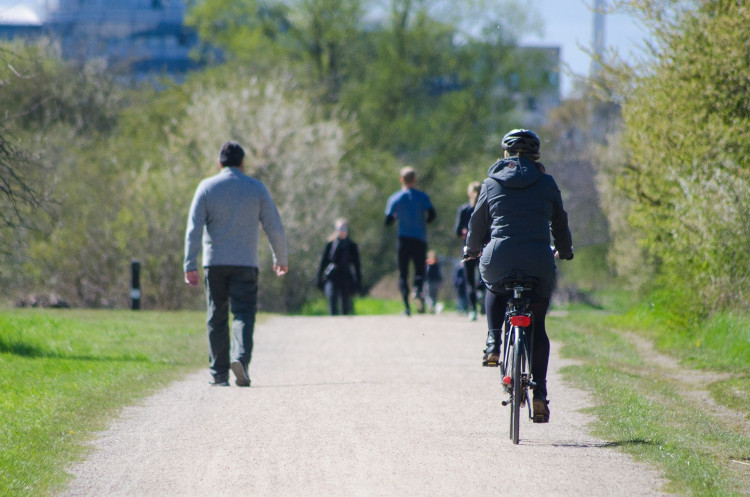Calls for change after ‘chronic underfunding’ of walking and cycling in England.
Posted on in Business News , Cycles News
People across England are missing out on a slew of health, wellbeing and environmental benefits due to half a century of “chronic underfunding” of its streets, according to Cycling UK.

This follows the release of a new report by the Institute for Public Policy Research (IPPR), supported by the charity. The report provides evidence of the multiple benefits that come from investment in walking, wheeling and cycling. This includes the creation of green jobs, boosting economic growth and making streets safer, in addition to proven health, wellbeing and environmental benefits.
- Increasing levels of cycling to those seen in Denmark would save the NHS £17 billion over 20 years by improving people’s health and wellbeing.
- Doubling cycling and increasing walking is estimated to prevent 8,300 premature deaths and save £567 million a year through improved air quality.
- Investment in walking, wheeling and cycling infrastructure offers better value for the public purse than money spent on road building projects and is considerably lower cost, as the report makes clear.
- For every £1 spent on Active Travel, there is an average return on investment of £5.62, compared with £2.50 for roads.
However, spending on walking, wheeling and cycling infrastructure can have a maximum return of up to £19 per £1 spent, while some road building projects offer no return on investment at all.
Sarah Mitchell, Cycling UK’s chief executive, said: “Spending on Active Travel is one of the most secure investments that a government can make, something that the new report by IPPR makes crystal clear. People want the choice to walk, wheel or cycle to get around their local neighbourhoods, but they can’t do it without a well-designed, joined-up network of suitable paths.
“When it comes to investing in Active Travel, Scotland and Wales are investing to reap the benefits that come from increased spending, while England remains the poor relation. It seems the UK Government didn’t get the memo and we therefore hope this new research will shift attitudes across Westminster so that walking, wheeling and cycling shoots up the list of investment priorities.
“It’s never been more important to prioritise investing in schemes like the National Cycle Network and we fully support IPPR’s call for the NCN to have a 10-year investment plan.”
England has some of the lowest cycling and walking rates in Europe, because investment in Active Travel has historically been low across the nation.
Fewer than one in five people walk, wheel or cycle on an average day compared to more than one in four across Europe.
Among IPPR’s recommendations is that the Government puts in place a 10-year investment guarantee for walking, wheeling and cycling with a commitment to spend at least £35 per head every year on physical infrastructure.
Current spending levels correspond to £24 per head annually in London between 2016 and 2021, while the rest of England spent at £10 per head.
At the same time, spending on roads amounts to an equivalent of £148 per person per year; more than 10 times the amount spent on Active Travel.
The report also recommends that spending on Active Travel should be at least 10% of the total transport budget, instead of the 2% it is currently.





















